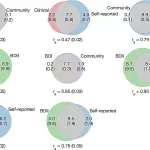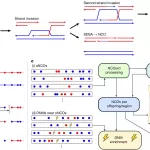9 May 2022 WHO
Overview
Estimating the true mortality burden of COVID-19 for every country in the world is a difficult, but crucial, public health endeavor. Attributing deaths, direct or indirect, to COVID-19 is problematic. A more attainable target is the “excess deaths”, the number of deaths in a particular period, relative to that expected during “normal times”, and we estimate this for all countries on a monthly time scale for 2020 and 2021. The excess mortality requires two numbers, the total deaths and the expected deaths, but the former is unavailable for many countries, and so modeling is required for these countries, and the expected deaths are based on historic data and we develop a model for producing expected estimates for all countries.We allow for uncertainty in the modeled expected numbers when calculating the excess. We describe the methods that were developed to produce World Health Organization (WHO) excess death estimates. To achieve both interpretability and transparency we developed a relatively simple overdispersed Poisson count framework, within which the various data types can be modeled. We use data from countries with national monthly data to build a predictive log-linear regression model with time-varying coefficients for countries without data. For a number of countries, subnational data only are available, and we construct a multinomial model for such data, based on the assumption that the fractions of deaths in specific sub-regions remain approximately constant over time. Our inferential approach is Bayesian, with the covariate predictive model being implemented in the fast and accurate INLA software. The subnational modeling was carried out using MCMC in Stan or in some nonstandard data situations, using our own MCMC code. Based on our modeling, the 95% interval estimate for global excess mortality, over 2020–2021, is 13.3–16.6 million.
ESTIMATING GLOBAL AND COUNTRY-SPECIFIC EXCESS MORTALITY DURING THE COVID-19 PANDEMIC











